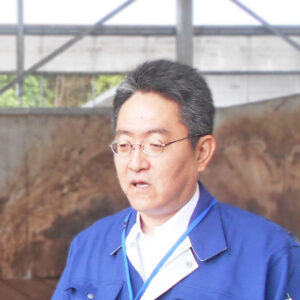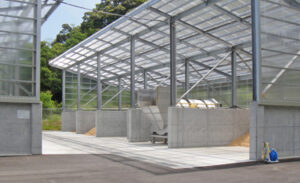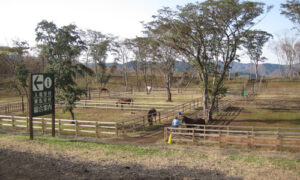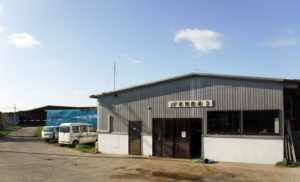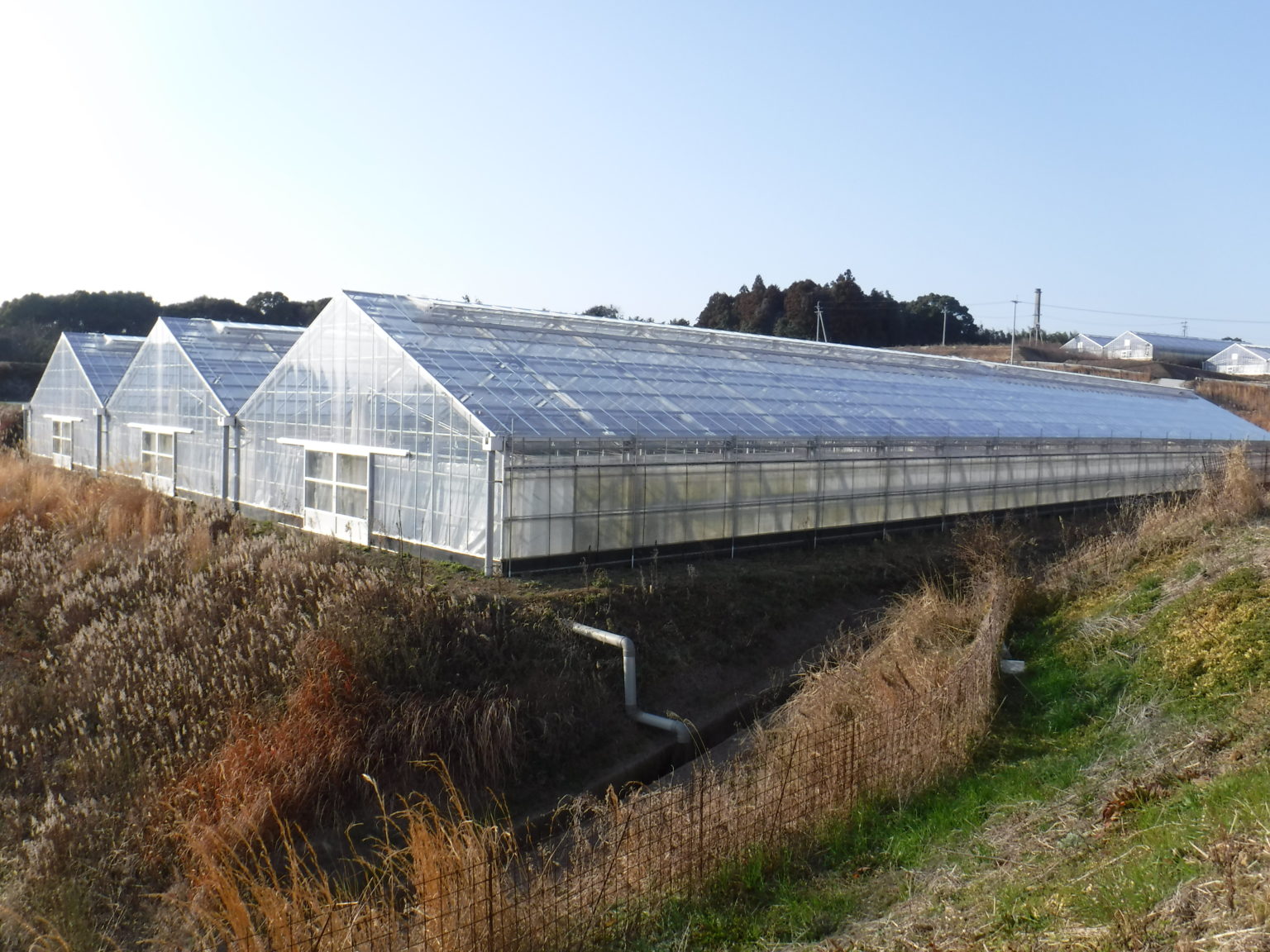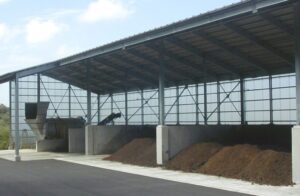Eliminating the Bad Odor from Pig Farms! Switching from Sawdust Deodorization to Porous Glass Deodorization for Instant Odor Improvement
Chino Farm
Chino Farm in Yamanashi Prefecture switched from sawdust deodorization to porous glass deodorization, instantly improving the odor situation. We present some feedback on the significant difference in odor control experienced.
We could not eliminate the odor of livestock manure from the compost and had been searching for a deodorization device for a long time
Wanted to deal with the stench caused by the smell of pig feces as soon as possible
In a facility that raises approximately 2,000 pigs, we were using a typical sealed-type mixing method (compost) for deodorizing sawdust, but the odor from the livestock manure was hardly being removed.
We were continuously searching for other deodorization devices or treatment methods to handle the bad smell from compost.
What prompted the introduction of the porous glass deodorization system?
Every day, we were searching the internet for a good deodorization system. We happened to come across an article on MIRAIE‘s website claiming that their porous glass could provide seven times the deodorizing effect of traditional methods, and at first, we thought this might be too good to be true.
However, as we made inquiries and listened, they confidently recommended it, saying, “If it’s for Chino Farm, we can remove 90% of the odors, no problem!” This made me consider it, and we decided to go ahead with the installation.
Immediately Sensing the Deodorization Effect
The moment we switched from sawdust deodorization to porous glass deodorization, we could immediately notice the change in odor. The odor level, which was around 2,000 ppm, consistently dropped to 200 ppm, making me realize, “Wow, this is really something”. The deodorization effect might seem exaggerated, but it deserves a full score of 100 points.
About the Porous Glass Deodorization Used This Time
In livestock farming, there are two sources of odor: livestock houses and composting facilities.
In the case of composting facilities that handle particularly odorous manure and urine, there are examples of using sealed vertical fermentation systems, as well as examples where heavy machinery or mixing equipment is used to turn the material and supply air for pile fermentation. In both methods, the gases at the early stage of fermentation have high concentrations of malodorous substances such as sulfur compounds and ammonia, so special attention is needed to manage odors during turning.
In traditional composting sheds, deodorization with common wood chips or sawdust becomes less effective over time, and the effort and cost involved in replacing the materials become a significant burden on management.
The porous glass deodorization of MIRAIE boasts several times the removal effectiveness of typical deodorization materials by firmly adhering bacteria to the substrate at high concentrations, requires almost no replacement of the substrate for nearly 10 years, and enables significant cost savings by utilizing circulating water and reducing electricity costs.

About Customer
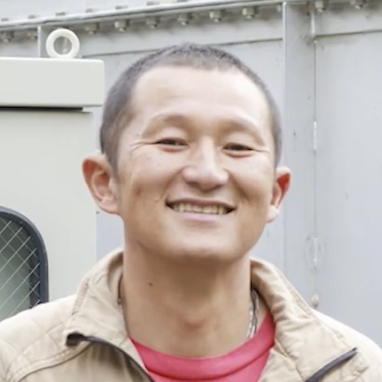
Chino Farm
Located in Kofu City, Yamanashi Prefecture, Chino Farm raises approximately 2,000 pigs on a 4,000 tsubo (approximately 13,200 square meters) property.
They specialize in unique breeds like Jomon Sweet Pork and Koshu Lactic Acid Bacteria Pork, which are carefully raised and sold directly to consumers, and their dedication to quality has earned them numerous awards at various competitions.
Introduction of the Product
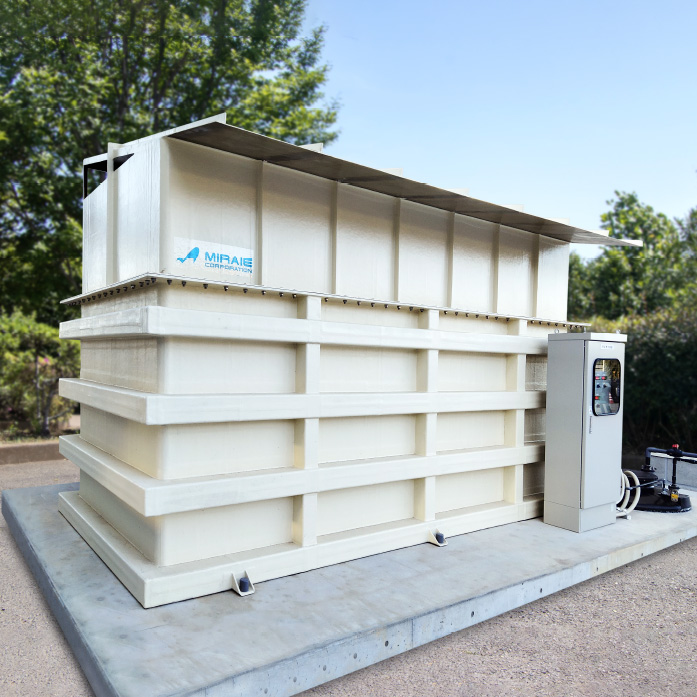
MIRAIE Biological Deodorizing Equipment
Four Times the Removal Capacity of Conventional Biological Deodorizers
Odor problems plague many compost producers. The porous glass device solves the problems of conventional deodorization technologies in terms of performance, cost, and installation area.







 Facebook
Facebook X
X Hatena
Hatena Poket
Poket